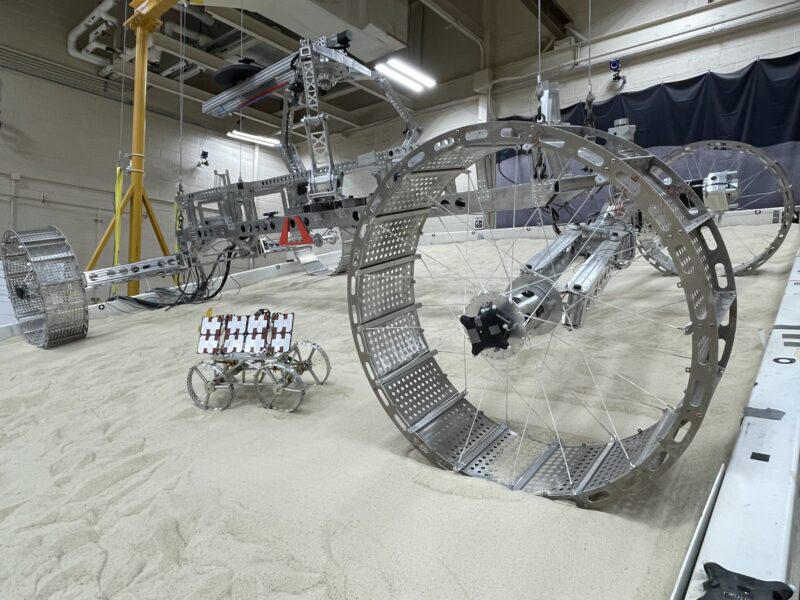
Pittsburgh-based Astrobotic, a space technology company, will be conducting a summer-long test campaign for its VSAT Optimized for Lunar Traverse (VOLT).
VOLT is a specialized lunar rover equipped with a vertical solar array that will charge other equipment at the lunar south pole such as habitats, rovers, and science instruments.
“To supply continuous power at the poles of the Moon, we need to take advantage of existing peaks of persistent light: locations with near constant sunlight throughout the year,” Robert Rolley, Astrobotic VOLT principal investigator, said. “Since most of these locations are at crater rims with high slope angles, we designed VOLT to deploy on extreme slopes. These tests proved that our system can operate successfully, with plenty of margin for more extreme locations.”
Astrobotic tested the engineering model of VOLT’s mobile rover base at NASA’s Glenn Research Center in Cleveland. VOLT was designed to operate on a 15-degree incline, but was stable on a 20-degree slope.
The company will unveil the VOLT engineering model in late October during the Keystone Space Conference held in Pittsburgh. It plans to deploy and demonstrate LunaGrid elements on the lunar surface in approximately mid-2026 and have the LunaGrid operating at the Moon’s south pole by 2028.